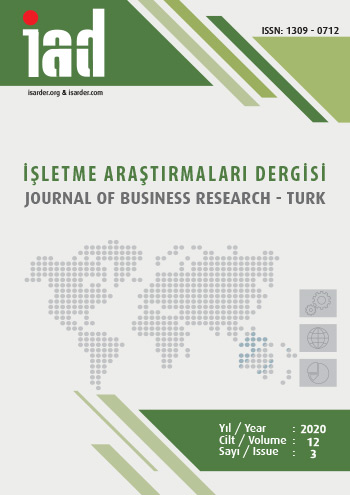Elektronik Liderliğin Temel Boyutu: Sanal Teknoloji Yeterliğinin Yöneticiye Duyulan Güvene Etkileri
The Basic Dimension of Electronic Leadership: Effects of Virtual Technology Competence on Trust in Supervisor
Author(s): Aynur Taş, Zülfi Umut Özkara, Belgin AydintanSubject(s): Business Economy / Management, Organizational Psychology, Human Resources in Economy, ICT Information and Communications Technologies
Published by: Orhan Sağçolak
Keywords: Electronic leadership; Virtual technology competence; Affect-based trust; Cognition-based trust;
Summary/Abstract: Purpose – The main purpose of this study is to research the mediating effect of employees’ cognition-based trust in their immediate supervisors in the relationship between supervisors’ virtual technology competence and employees’ affect-based trust in their supervisors. Design/methodology/approach – Dataset of the study consists of total 162 questionnaires gathered from 126 academic and 36 administrative staff at a faculty and college of a state university in Ankara. Data input and analyses were done with SPSS software. Validity, reliability, Pearson correlation, hierarchical regression, and Sobel test analyses were employed in this study. Findings – According to the analysis results of the study, supervisors’ virtual technology competence directly affects employees’ cognition-based trust in their immediate supervisors in a significant and positive way. And then, cognition-based trust has a direct, significant and positive effect on employees’ affect-based trust in these supervisors. Also, supervisors’ virtual technology competence indirectly affects employees’ affect-based trust in their immediate supervisors only through “cognition-based trust” in a significant and positive way. In other words, cognition-based trust has been a full mediating variable in the established mechanism. Discussion – In this study, answer is sought for the question of “is it possible to increase the benefit of trust to the organization and thus to contribute to the organization through the enhancing effects of an increment in supervisors’ level of virtual technology competence on the levels of cognition- and affect-based trust in these supervisors?”. According to the research results, it is possible to contribute to the organization thanks to the mechanism established in this study.
Journal: İşletme Araştırmaları Dergisi
- Issue Year: 12/2020
- Issue No: 3
- Page Range: 2879-2894
- Page Count: 16
- Language: Turkish

